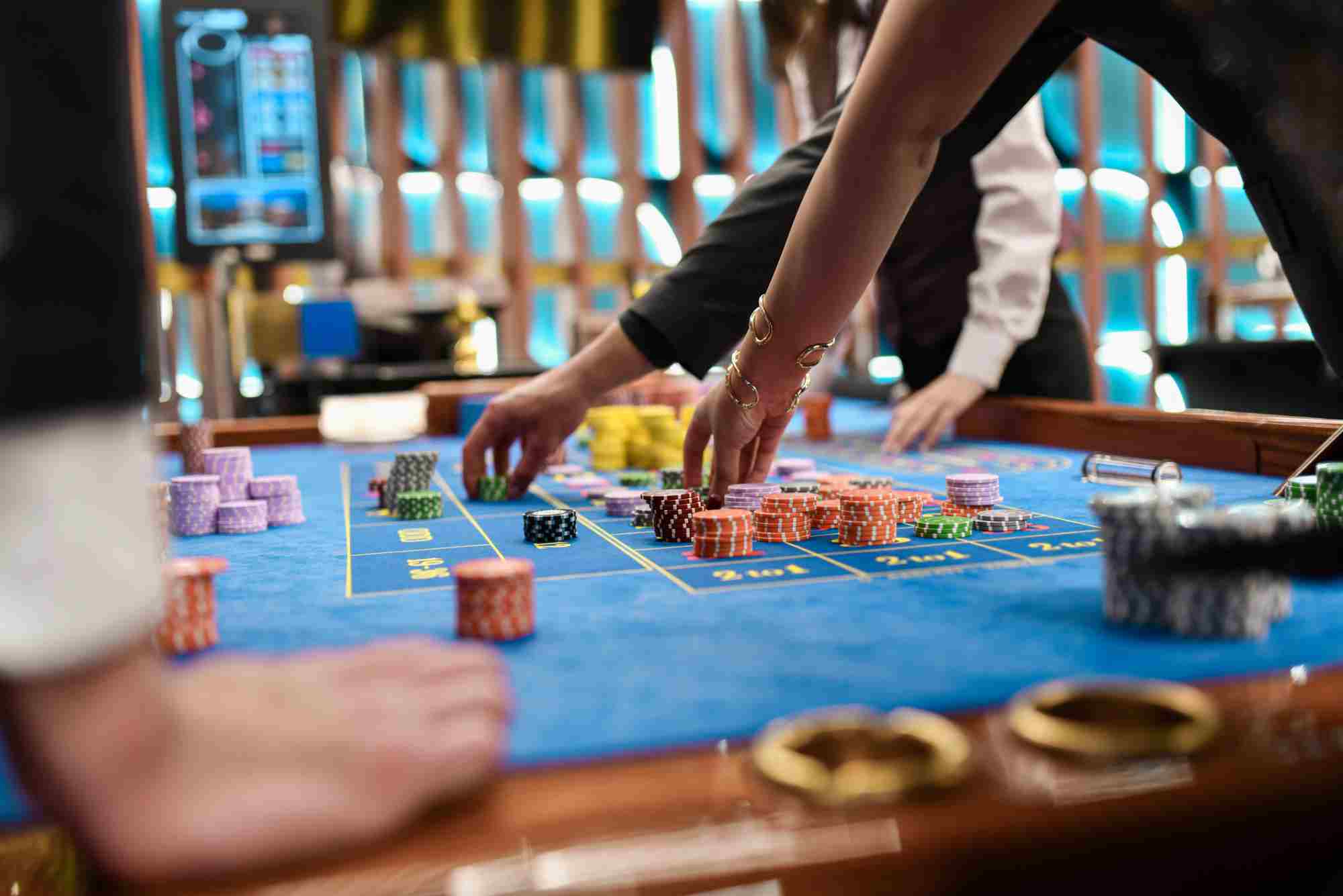Every gambler knows the thrill of placing a bet, watching the screen, and waiting for that rush of adrenaline when the outcome is revealed. Whether you’re spinning the reels of a slot machine, wagering on a football match, or playing a strategic round of blackjack, one thing quietly controls your fate: the odds.
Odds determine how much you win, how often you win, and ultimately, how long you can stay in the game. Yet surprisingly few players take the time to truly understand them. If you’ve ever wondered why some people seem to win more often or why certain games feel “luckier,” it all comes down to how the odds are structured.
Let’s explore how odds shape your gambling results — and how learning to read them can make you a smarter, more confident player.
Understanding What Gambling Odds Really Mean
Odds are the mathematical way of expressing probability — the likelihood that a certain event will occur. In gambling, they’re essentially the balance between risk and reward. They tell you two things: how likely you are to win, and how much you’ll be paid if you do.
For instance, if you’re betting on a football match and a team has odds of 2.0 (or “even money”), it means there’s roughly a 50% chance of winning. If you bet £10, you’ll receive £20 back if your prediction is correct. The lower the odds, the higher the probability of winning — but the smaller your payout. Higher odds mean less likelihood, but a bigger potential prize.
Understanding this trade-off is what separates casual players from those who treat gambling as a game of informed decision-making rather than pure chance.
How Odds Impact Your Overall Winnings
When you place bets without understanding the odds, you’re effectively playing blind. Every game in a casino, from roulette to poker, has a built-in statistical edge — the “house edge.” This represents the percentage advantage the casino holds over players in the long run. Odds work in tandem with this edge to determine how often the casino wins versus how often players do.
For example, in European roulette, there’s one green zero and 37 total numbers. That gives a single-number bet odds of 1 in 37. You’re paid 35 to 1 for a win, which sounds generous — but over time, the difference between true odds and payout odds is how the casino maintains profit. The same principle applies to slots, where “return to player” (RTP) percentages tell you roughly how much the machine pays back to players over millions of spins.
Smart players understand that it’s not about individual wins, but how often those wins occur and how big they are in comparison to the losses. Managing your bankroll with the odds in mind means knowing which bets offer realistic long-term returns and which are statistical traps dressed up as quick wins.
The Role of Odds on the Best Gambling Sites UK
Most modern online casinos make it easy to see odds, but interpreting them takes a bit of practice. On the best gambling sites uk, you’ll find a wide range of games with different payout structures and probability models. Sportsbooks display odds in fractional (like 3/1), decimal (like 4.0), or American (+300) formats, depending on your preference.
If you’re betting on sports, odds reflect not just random chance but real-world factors such as team performance, player form, weather, and injuries. The more unpredictable the outcome, the higher the odds — and potentially the payout.
Casino games, on the other hand, rely heavily on fixed mathematical odds. Games like blackjack and poker give players the chance to improve their odds through skill, while games like slots or roulette depend purely on probability and random number generators. When exploring any new gambling platform, start by checking how they publish and explain their odds. Reliable sites will always display payout tables, RTPs, and terms clearly — a sign they’re not trying to hide the math from you.
Why “Better Odds” Don’t Always Mean “More Wins”
It’s easy to assume that if the odds are in your favor, you’ll win more often. But gambling doesn’t work like that in the short term. Even if the theoretical odds suggest a 1 in 6 chance of winning, you could lose ten times in a row before your “one” hits. This is due to variance — the natural randomness in outcomes over short samples.
That’s why even games with relatively low house edges can still feel streaky. A slot with a 96% RTP still means the casino statistically keeps 4% of all wagers in the long run. You might win big on your first spin or lose 100 spins straight — both are possible, and neither breaks the math.
Understanding variance helps you approach gambling with realistic expectations. Instead of chasing every loss or over-betting on “hot” streaks, recognize that odds smooth out only over time. Patience and consistency will always beat emotion and impulse when it comes to lasting in the game.
How Odds Influence Strategy in Different Games
Let’s look at a few examples of how odds affect your approach across various games:
In blackjack, optimal strategy charts are based entirely on probability. Every move — hit, stand, double, or split — is statistically calculated to minimize the house edge. A player who follows basic strategy perfectly can reduce the casino’s advantage to less than 1%.
In roulette, betting on red or black has odds close to 50/50 (with a slight disadvantage because of the zero). That makes it one of the safer bets compared to individual numbers or corners. Yet the trade-off is smaller payouts.
In sports betting, understanding implied probability — the hidden percentage behind the odds — lets you spot value bets. For example, if the odds on a team imply a 30% chance of winning but your analysis suggests they have a 40% chance, that’s value. Over time, finding such small edges can make a big difference.
Every game, from slots to poker tournaments, rewards those who understand how odds shape outcomes. The goal isn’t to beat the odds — that’s impossible long term — but to make informed choices within them.
Emotional Bias and Misunderstanding of Odds
Many gamblers lose money not because the odds are bad, but because they misread them. Cognitive biases — like the “gambler’s fallacy” — make people believe that after a series of losses, a win is “due.” In reality, each spin or hand is independent. The odds reset every time.
Similarly, overconfidence after a few wins can make players take riskier bets, assuming luck will continue. Casinos design experiences to amplify this illusion of control. Lights, sounds, and near-miss animations all manipulate your perception of probability.
Understanding odds protects you from these psychological traps. It keeps you grounded in math, not emotion — the single biggest difference between casual gambling and responsible, strategic play.
The Importance of Transparency and Responsible Play
Trustworthy platforms make it easy to see how odds and payouts work. If you ever come across a casino that hides RTP information or uses vague “fair play” claims without proof, that’s a red flag. Responsible operators openly share how their random number generators are certified and how each game’s odds are calculated.
This transparency empowers players to make educated decisions and ensures gambling remains entertainment — not exploitation. Remember, gambling should always be fun. Once you start focusing only on beating the odds or chasing losses, you’ve already stepped outside that balance.
Responsible play also means setting limits — not just on money, but on time and emotion. Even when odds are in your favor, randomness will still create losing streaks. Having a plan before you play keeps you in control no matter what the numbers say.
Final Thoughts: The Power of Knowing the Odds
So, how do odds affect your gambling wins? In every possible way. They’re the backbone of every wager, every spin, and every strategy. The more you understand them, the less likely you are to fall for myths, emotions, or marketing gimmicks.
The best gamblers aren’t the luckiest — they’re the most informed. They know when the numbers are worth the risk and when to walk away. Odds won’t guarantee success, but they give you the knowledge to make every decision with clarity and confidence.
Whether you’re betting on sports, playing cards, or trying your luck at online slots, take the time to learn how the numbers behind the game work. It’s the smartest bet you’ll ever make.




